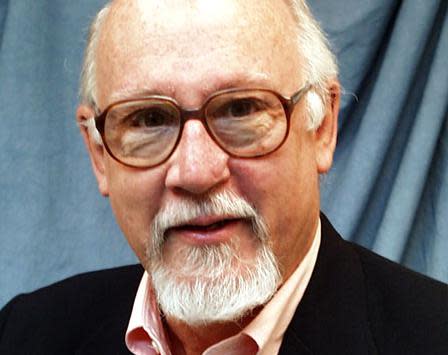Michael Martone’s memoir recounts writerly conversations | DON NOBLE
- Oops!Something went wrong.Please try again later.
There is always something new going on in the world of writing.
Once upon a time there was no such thing as a novel. Then there was. Recently, novels have been getting longer and longer. I think 250 pages ought to be enough, but readers want them 400 and 500. John Irving’s new novel, “The Last Chairlift,” is 900 pages long.
Biographies and histories are also expanding. The text is often 300 pages with 100 pages of notes, which almost no one reads.
More: Brad Watson’s first book of stories still shines | DON NOBLE
Simultaneously, we are also seeing more and more short, short stories, two or three pages, and even flash fiction — sometimes one scene, 200-300 words.
This little book — “Table Talk and Second Thoughts: A Memoir” by Michael Martone — is in a sense flash nonfiction. It is a memoir; that is each entry is Martone remembering a specific event in his life.

Each passage is one paragraph long. Each has a dateline: time and place.
The passages are not in chronological order or any other order, really, although the reader constantly tries to establish that order.
This device, called “table talk,” is surprisingly, not new. It goes back through Samuel Johnson, Martin Luther, all the way really to Plato’s “Symposium.” Remarks made by the great person at table are recorded so they won’t be lost forever.
The famous person here is not Martone. He is remembering, in this little book, conversations he has had with other writers and teachers of writing over the decades: conversations at schools where he was a student — Butler University, Indiana University, Johns Hopkins, and schools where he taught — Syracuse, the University of Alabama. Conversations held at readings, residencies, conferences, workshops: all the different gatherings of the creative writing world.
You could, if you wanted, construct a kind of biography out of these snapshots, but there is no need. The remark, the witticism, the insight of the other is the point.
Several, of course, take place in Tuscaloosa. In the first entry, 2010, he and Adrienne Rich discuss a railroad trestle and depots here in town. Kevin Young and Martone discussed what question a newcomer to town would be asked.
They agreed: “What church will you go to?”
When Gay Talese visited here in 2010, Martone was his host and guide, probably chosen because he was an Italian-American writer and one of the few creative writing teachers who “wore a hat, coat, tie.” He and Talese walking around on campus were like two “time travelers.”
Martone was to “develop” Talese; that is, ask for money. The two discussed Chinese food, haberdashery, Italy. Martone never made the “ask.”
When Rick Moody and Laurel Nakadate visited campus in 2014, they were startled by the young women students’ clothes. “It looked, they said, as if none of them were wearing pants.” This was the look: short-shorts and “extra-long sweatshirts or long-sleeve tees.”
Of course, not all the conversations took place in Tuscaloosa. Martone passes on a story told him by Lewis Hyde, at Harvard University. At the Faculty Club, Hyde was seated with John Kenneth Galbraith, Arthur Schlesinger and B. F. Skinner. What brilliant conversation would he overhear?
The three geniuses were discussing their retirement accounts.
Don Noble’s newest book is Alabama Noir, a collection of original stories by Winston Groom, Ace Atkins, Carolyn Haines, Brad Watson, and eleven other Alabama authors.
“Table Talk and Second Thoughts: A Memoir”
Author: Michael Martone
Publisher: Booth 19, 2024
Pages: 133
Price: $15 (Paper)
This article originally appeared on The Tuscaloosa News: UA professor recalls conversations with authors | DON NOBLE
